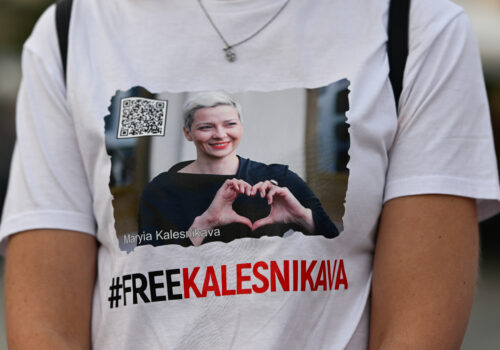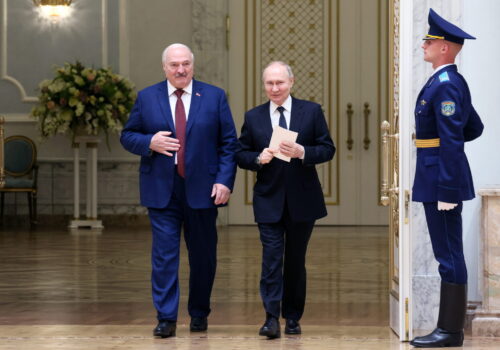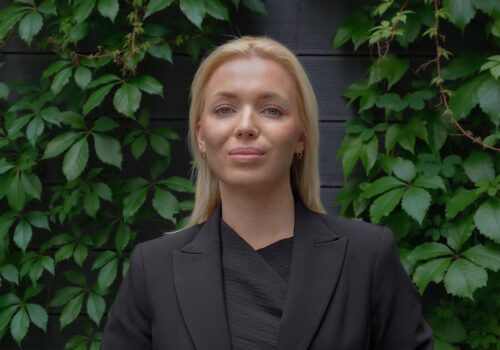Belarusian dictator Alyaksandr Lukashenka claims to have played a starring role in negotiating a settlement that halted Wagner Group leader Yevgeniy Prigozhin’s attempted mutiny and march on Moscow, and reportedly allowed the mercenary chief and some of his cronies to relocate to Belarus. Lukashenka’s role in mediating the conflict has put the dictator in the spotlight for his prominent loyalty to Russian president Vladimir Putin.
Continued cooperation between Russia and the Lukashenka regime, which has included stationing Russian nuclear weapons in Belarus’ territory, has also raised security concerns among Belarus’ neighbors in Poland and the Baltic states, all of which will meet in Vilnius for the NATO Summit in July to discuss the Alliance’s trajectory and response to threats in the region.
What effect does Prigozhin and the Wagner Group’s presence have in Belarus? How should Ukraine and Western regional allies respond to Lukashenka’s ever-closer relations with Moscow, including the reported deployment of nuclear weapons in Belarus? With Russian nuclear weapons in Belarus, how does Prigozhin and Wagner’s presence increase the risk of nuclear instability?
Sviatlana Tsikhanouskaya, national leader of Belarus, provides pre-recorded keynote remarks.
Keynote remarks
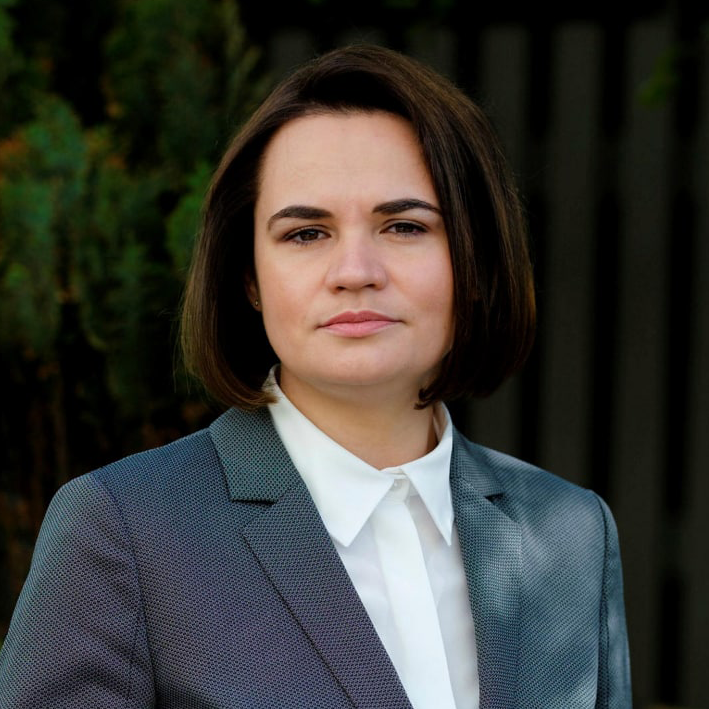
Sviatlana Tsikhanouskaya
National Leader of Belarus
Speakers
Ryhor Astapenia
Director, Belarus Initiative, Russia and Eurasia
Chatham House
David Kramer
Executive Director
George W. Bush Institute
Hanna Liubakova
Nonresident Fellow, Eurasia Center
Atlantic Council
Brian Whitmore
Nonresident Senior Fellow, Eurasia Center
Atlantic Council;
Adjunct Assistant Professor,
University of Texas-Arlington
Moderated by
This event will not feature an in-person audience. You will be able to join via desktop or mobile app, through your web browser, or by phone. To join the question and answer period, you must join by app or web.
Register above for details on joining the virtual audience.
Stay connected
Follow us on social media
and support our work
spotlight
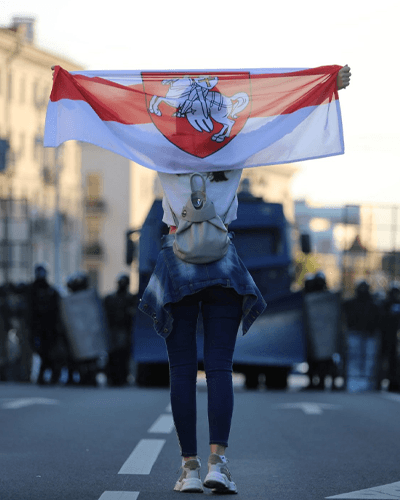
Belarus
Belarus’ August 2020 presidential election saw widespread protests and serious fraud allegations as President Lukashenka claimed victory against popular opposition candidate Sviatlana Tsikhanouskaya. Will Belarus begin its transition to democracy, or will Belarusians face further repression as Lukashenka’s rule falters?

The Eurasia Center’s mission is to promote policies that strengthen stability, democratic values, and prosperity in Eurasia, from Eastern Europe in the West to the Caucasus, Russia, and Central Asia in the East.

